Many Muslims are extremely naïve or in denial about the reality and prevalence of domestic violence and abuse in their communities. Many believe in ignoring incidents of abuse as “internal family matters” and brush off statistics and reports fearing that if these reports are given credence, it would give an image of Islam as a violent and misogynistic religion.
The irony is that this view is confirmed if the community ignores such incidents or tries to brush off evidence and statistics, not if the community were to counsel the perpetrators and support the victims.
Domestic violence and abuse in Muslim homes
‘Domestic violence’ is an umbrella term used to describe aggressive, oppressive and ‘dominant’ behaviour adopted by one individual over another and is manifested in various forms, most frequently as physical violence and emotional and financial abuse.
Founder of the Peaceful Families Project, Dr. Sharifa Alkhateeb developed a pictogram called the Muslim Wheel of Domestic Violence, which conveys some of the ways religion can be distorted to justify abuse against women and children in the family context.
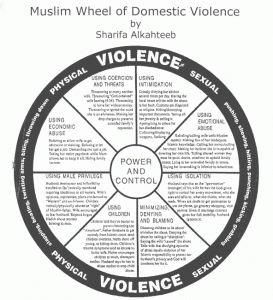
Using Isolation
- The husband says that as the “qawwaam” (manager) of his wife, he has the God-given right to control her every movement, who she sees and talks to, what she thinks, what she reads
- Wives are made to get permission to use the telephone, go grocery shopping, visit parents
- Even if marriage contract gives her full mobility, husband ignores it
Minimizing, Denying, Blaming
- Directing children to lie about/trivializing the abuse
- Denying the abuse by calling it “discipline”
- Saying the wife caused the abuse
- Telling wife that divulging episodes of abuse equals violation of her Islamic responsibility to respect her husband’s privacy and God will condemn her for it
Using Children
- Children told they are being beaten to prevent becoming too “Westernised” (insert any other undesirable quality)
- Father threatens to get custody from Islamic court, send children overseas, marry them off young or kidnap them
- Children’s trauma symptoms used as excuse to batter wife
- Father encourages children to insult, disrespect mother
- Husband says he has to abuse mother to stop child abuse
Using Male Privilege
- Husband’s dominance and inflexibility extolled as Qu’ranically mandated requiring obedience in all matters
- Wife’s opinions, aspirations, plans considered as “Western” and un-Islamic
- Children verbally/physically abused as “right” of Muslim father
- Wife encouraged to fear husband
- Repeats false or weak Hadith [religious text] about women’s subservience to men
Using Economic Abuse
- Refusing to allow wife to get education or training
- Refusing to let her get a job
- Demanding she quit a job
- Taking her entire paycheck while Islam allows her to keep it all
- Hiding family income
Using Coercion and Threats
- Threatening to marry another wife
- Threatening “God-ordained” wife beating (Qu’ran 4:34)
- Threatening to leave her without money
- Threatening to spread the word that she is an adulteress [or ‘nushooz’ i.e., disobedient]
- Making her drop charges to preserve extended family’s reputation
Using Intimidation
- Grossly dirtying her kitchen several times a day
- Having the local Imam [clergyman] tell the wife that the abuse is her fault
- Customs are disguised as religion
- Hiding/destroying important documents
- Taking all her jewelry and selling it
- Apologizing to others for her “disobedience”
- Collecting, displaying weapons
- Stalking
Using Emotional Abuse
- Belittling/calling wife unfit Muslim mother
- Making fun of her inadequate Islamic knowledge
- Calling her names/calling her crazy
- Making her believe she is incapable of directing her own life
- Telling abused women they must be quiet, docile, obedient to uphold family honour
- Lying to her extended family
- Saying her lovemaking is inferior to others
Why victims stay
Project Sakinah, an initiative that aims to stimulate awareness and action in the Muslim community regarding domestic violence and abuse, outlines the reasons why victims continue staying in abusive relationships, despite the toll on a person’s faith and spirit, on their perspective of life, and on their ability to see clearly what is going on.
- Fate: Victims consider it their destiny, something that is written and cannot be changed or something they are strong enough to handle.
- Mistaken Understanding of Islam: The victim may mistakenly believe that Islam does not allow him or her to leave an abusive relationship.
- Protecting the Image of Islam: The victim may believe that remaining silent about the abuse keeps others from thinking badly about Muslims and Islam.
- Protecting the Image of the Family or Community: The victims may worry that speaking up about the abuse, or leaving the abuser, may harm the reputation of the family or community.
- Divorce: divorce may not be considered acceptable in the victim’s culture or family. While the laws regarding divorce in Islam are complex, a woman is permitted to initiate divorce.
- Custody: They may be scared of losing the custody of their children.
- Fear of physical harm: The victim may be frightened that if they tell, or try to leave they will be physically hurt, or even lose their life.
- Immigration status: They may be afraid of losing immigration status or be afraid of deportation.
- Financial dependency: The victims may not have any source of income and they may depend fully or partially on the abuser.
- Age: The victim may feel too old to make a new start.
- Love: The victim may have truly deep feelings for the abusive partner, regardless of the abuse, and be unwilling to leave.
- Promises, promises: Abusers may promise that the behaviour will never happen again.
- It’s what they know: The lines between love and being controlled may become blurred if they’ve grown up in this environment. They may not recognize that while abuse may be a normal part of his/her relationship, it is not normal for a healthy relationship.
- Guilt: Abuse often includes a pattern of blaming the victim and making them feel as though it is their fault.
- “No one would believe me”: The victim may feel as though he/she lacks support if they tell the truth. He/she may also fear being alone and losing family and friends.
- “I can change him/her”: The victim may believe the abuser can change over time.
- Low self-esteem: After being verbally/emotionally abused, a victim may feel that he/she can do no better than the current relationship, or that no one else will want them. The victim may feel they deserve the abuse.
An unhealthy relationship is characterized by a cycle of abuse where the abuser uses disrespect, fear, jealousy and possessiveness to create an imbalance of power. Mental health professionals recognize that many factors contribute to violence beyond a need to dominate, including stress from a variety of sources, substance abuse, childhood attachment deficits, a history of trauma, lack of emotional control, and brain injuries. But the bottom line is: none of these excuse the abuse of another human being.
Islam does not condone or accept domestic violence and the Qur’an and Sunnah clearly show that Islam lays great emphasis on maintaining a loving, tranquil family life where the spouses are likened to “garments” for each other, to signify the close nature of their relationship.
Un-Islamic cultural practices and a lack of knowledge of scriptural interpretations are the reasons why domestic abuse has spread in Muslim communities, and the best means of putting an end to it is to raise our collective level of Taqwa, Islamic knowledge, awareness of the problem and providing compassion and solutions for victims.
Limited free articles. Subscribe for full access.


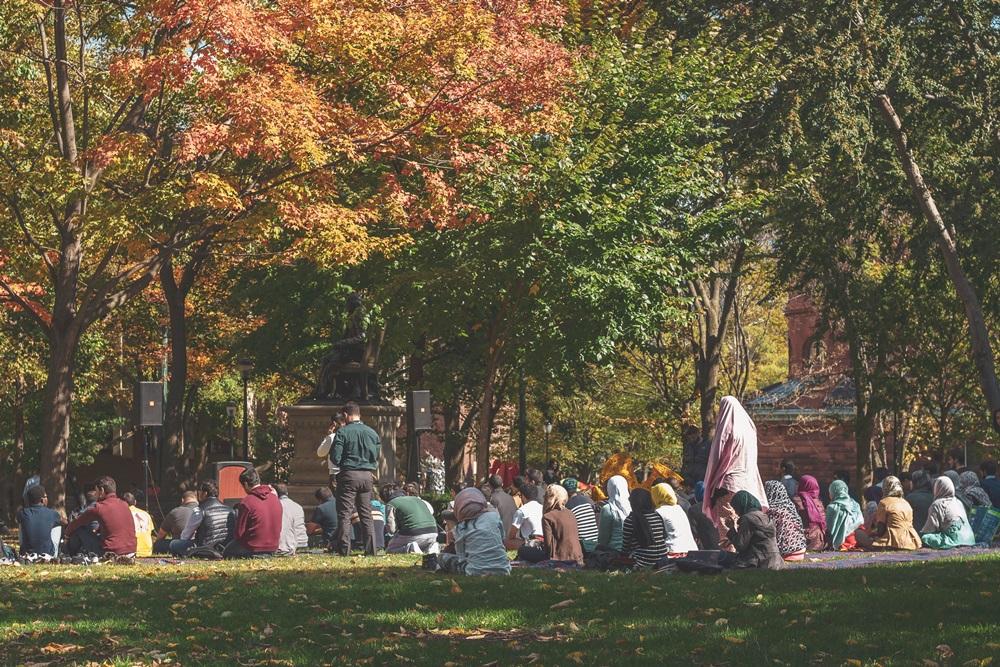
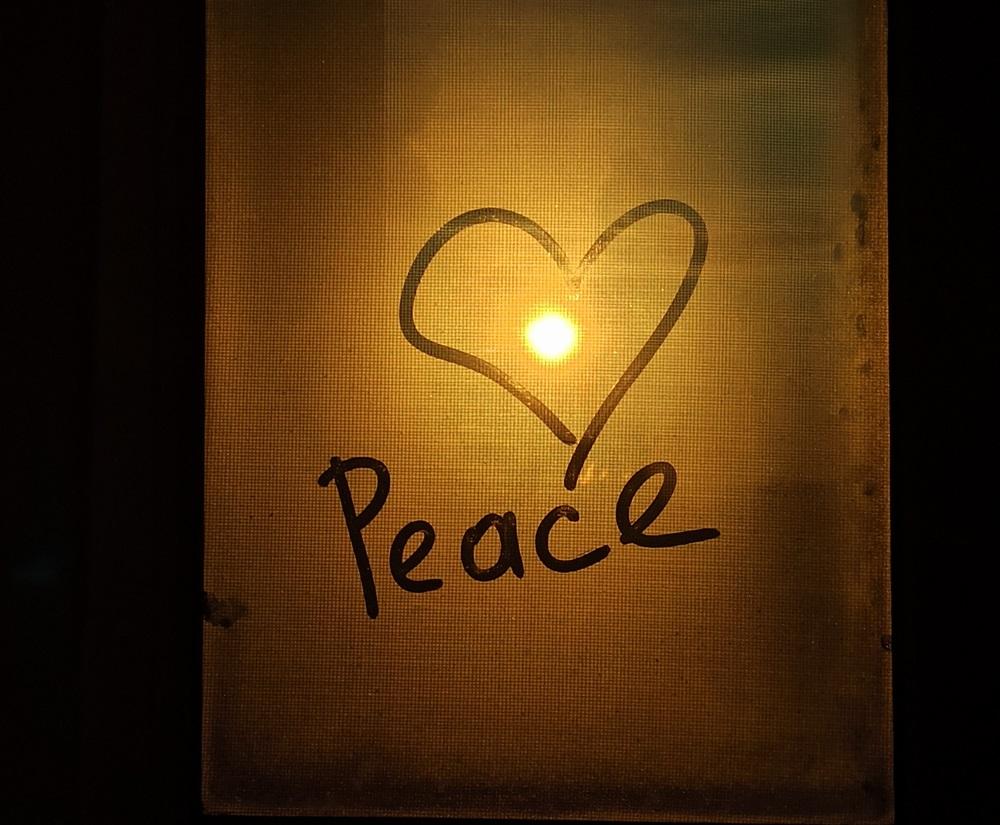

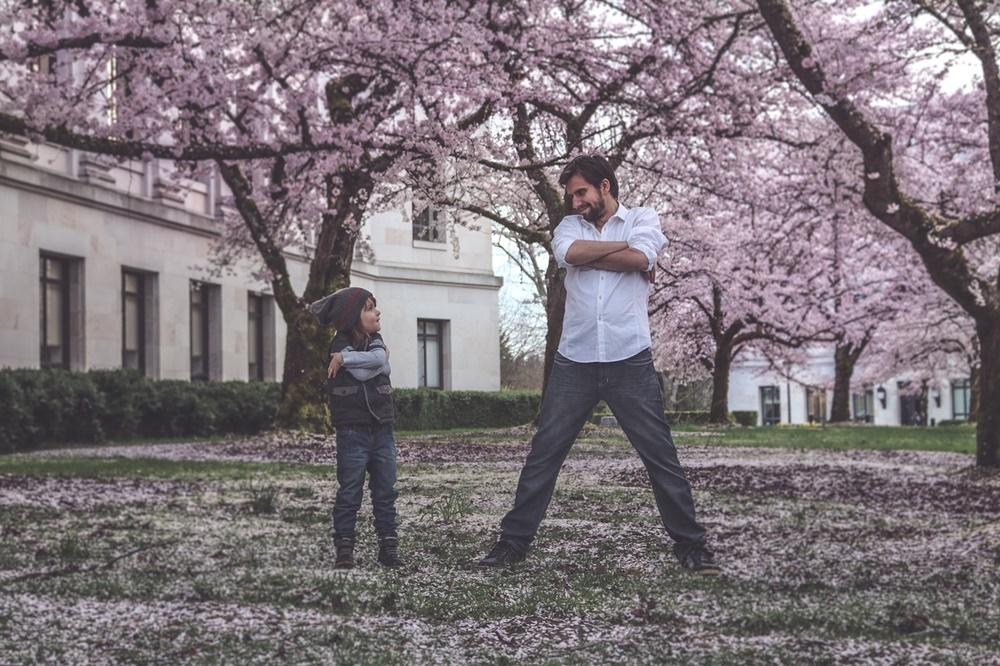
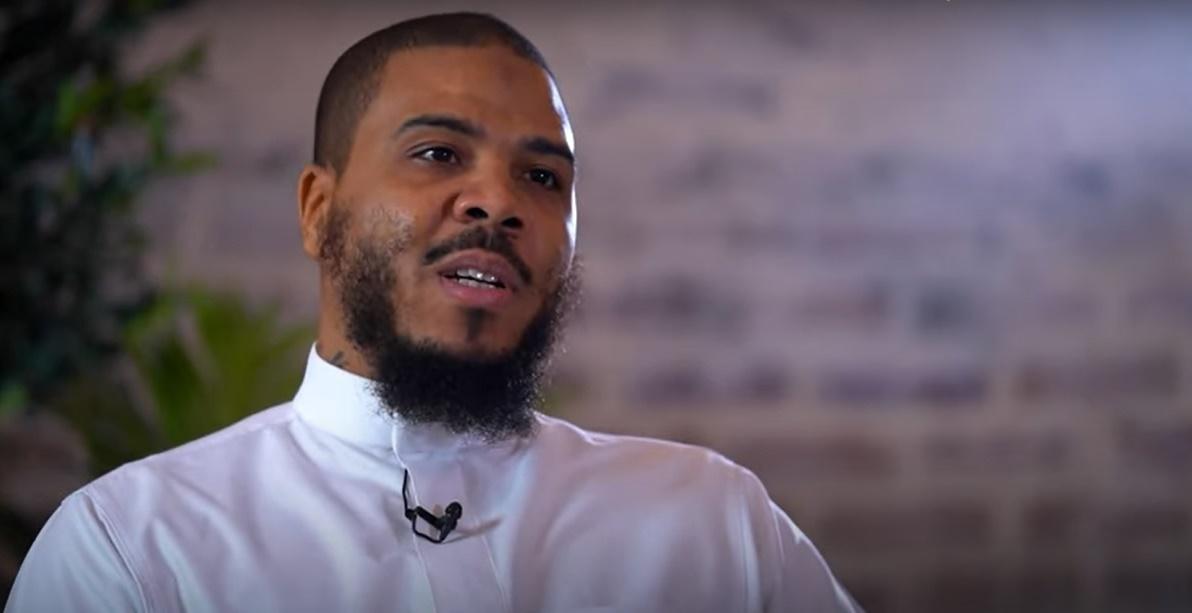

 Dr. Bilal Philips
Dr. Bilal Philips